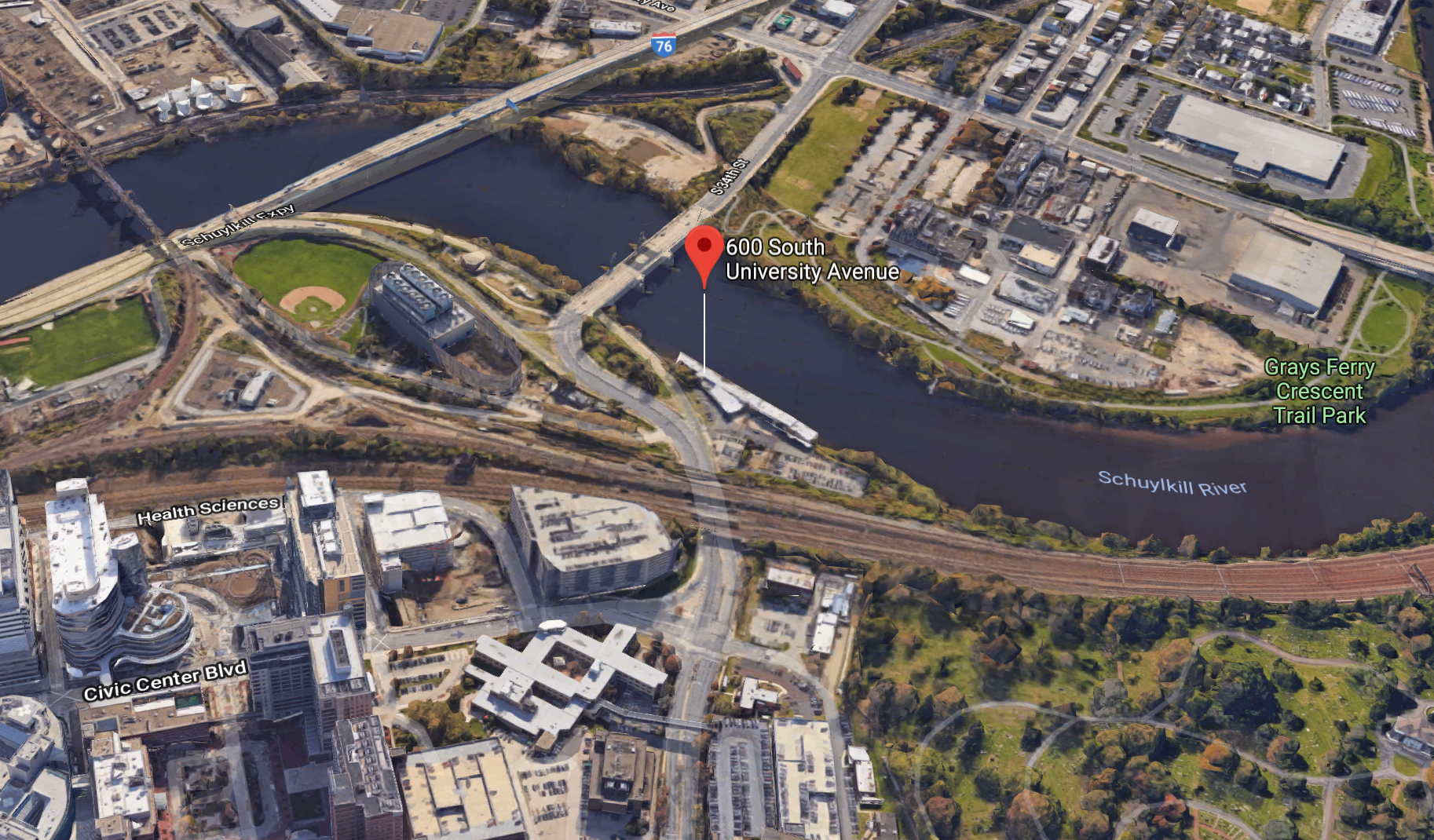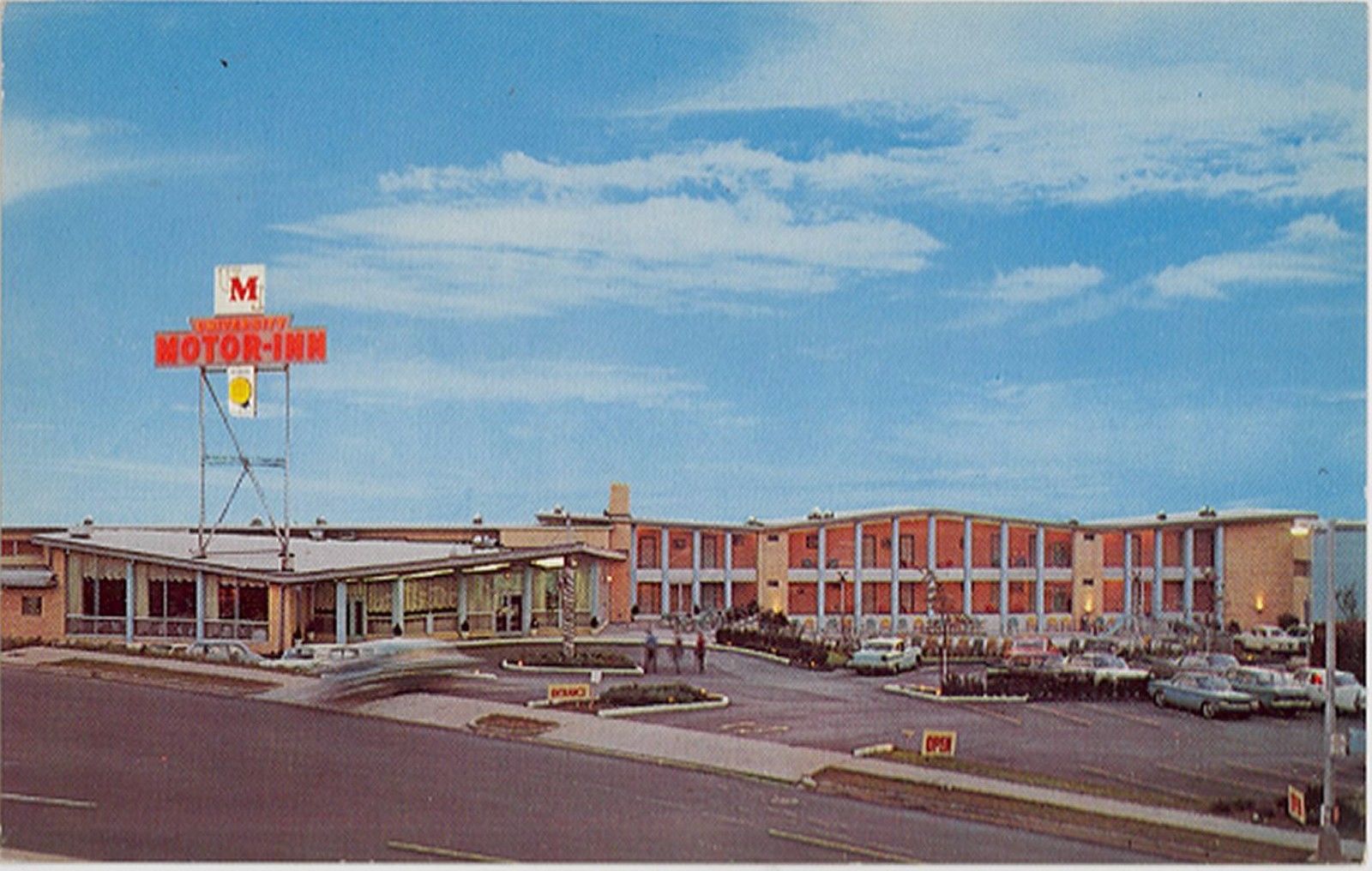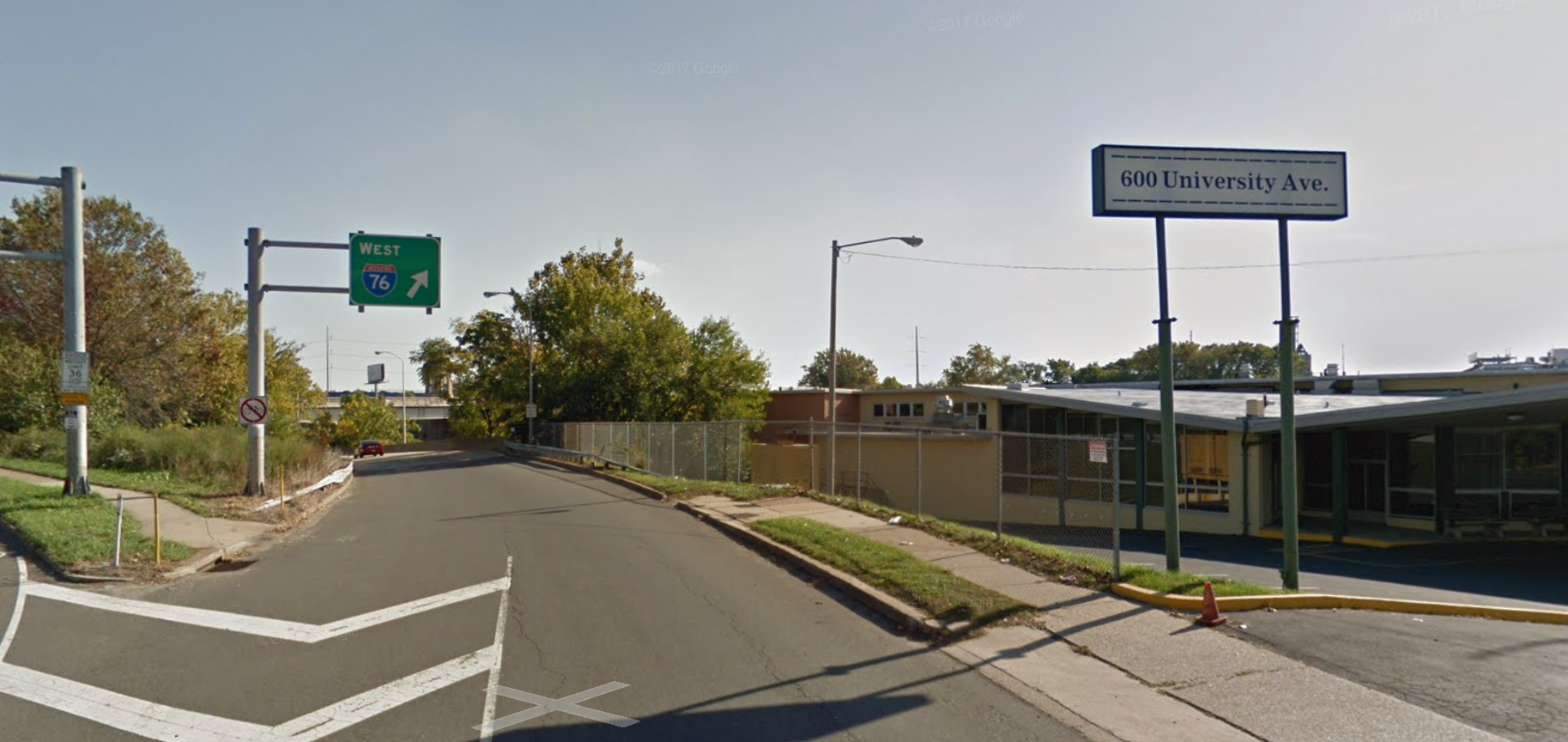A mysterious zoning bill hints at a high-rise future for one of University City’s last large undeveloped parcels

When drivers exit University City, headed to the Schuylkill Expressway, they breeze past a ghostly Mid-century Modern motel building at 600 University Avenue.
Marooned at the edge of the University of Pennsylvania’s hospital complex amid high-speed roadways and looming institutional structures, the squat structure has served as a 1960s-era motel for university visitors, a dormitory for medical students, a rehabilitation facility, and most recently, a halfway house. Vacant since 2014, the building owned by King of Prussia-based Philadelphia Suburban Development Corporation has served as an odd marker to the area’s changing fates — and now it looks like a full-blown transformation could be in the works for the site.
West Philadelphia Councilwoman Jannie Blackwell recently introduced a remapping bill that would alter the underlying zoning from industrial to CMX-5, which is the densest allowable district in the city’s code. Despite a vote down from the Philadelphia City Planning Commision on Tuesday, the bill will likely get a receptive ear in City Council, where it is due for consideration in the coming weeks.
Largely found in Center City and other locations where skyscraper development is found, CMX-5 zoning would greatly bolster the value of the land. Asked why the zoning is being altered, Blackwell said she didn’t know the specifics of the developer’s plans.
“This is a bill that’s intended to change the zoning to create a donation for Penn,” said Blackwell in an interview with PlanPhilly. “A private developer owns it and I understand his intention is to donate it to Penn. It’s a Penn area, okay, so we assume they’ll work out whatever it is and then we’ll go from there.”
“I don’t know why they want it [CMX-5], I couldn’t find out anything,” she added. “It’s a Penn area that’s the only reason why I didn’t fight it. I prefer to go the normal route in zoning, it makes it so much easier, but it wasn’t worth a fight because it’s in Penn’s general zoning area.”
Blackwell isn’t the only person unwilling or unable to offer details on plans for the site.
The University of Pennsylvania did not respond to questions about the institution’s awareness of the remapping, the land-gift Blackwell discussed, or possible hospital-related uses for the site.
The Philadelphia Suburban Development Corp is no more forthcoming about the site. “I don’t know that we as a company like to talk to reporters about anything, so I don’t think I’ll be able to help you,” said the company’s office manager Barbara Nowelsk before hanging up the phone.
The legislation introduced by Blackwell is a classic case of what is pejoratively-called “spot zoning,” a legally murky process where the zoning code is tweaked to fit the needs of a single property owner. The practice is common in Philadelphia, although the zoning code reform of 2012 and subsequent neighborhood remappings were meant to minimize such legislation.
One former city zoning official described the proposed rezoning as “absolutely inappropriate” for the site. CMX-5 is meant to encourage soaring mixed-use development of the densest nature in central, transit-accessible areas. An isolated plot of land accessible only by automobile does not meet that qualification.
Courts have periodically ruled against instances of spot zoning, but usually not when a property owner and local government seem to be in agreement about a piece of legislation. In 2014, a lawyer for the city told a PlanPhilly reporter that sound justification for the change is needed to avoid legal scrutiny, as is a remapping bill that doesn’t make a parcel too out-of-whack with surrounding zoning.
Otherwise, spot zoning can be seen as intervening on the behalf of a single property owner.
“In general, when you are switching from anything else, except maybe CMX-4, to CMX-5, and it’s just one parcel, you are wading into the territory of picking real-estate winners and losers,” said Greg Pastore, a former member of the Zoning Board of Adjustment.
On Tuesday, the Planning Commission seemed to agree with that assessment. The commissioners shook their heads and made faces as they listened to the staff presentation of the bill, which confirmed that the suburban development corporation specifically asked Blackwell for the bill.
“Am I correct in that there is no specific proposal for the use of this property,” asked Joseph Syrnick, Vice-Chairman of the Commission. After the staff affirmed this view, “so this zoning change would just make the property more valuable because the zoning would just allow them to go bigger?”
The planning staff spoke against recommending the bill for passage and the Commission itself agreed, voting unanimously against giving the legislation their backing.
But the commission is only advisory and the bill will be left to City Council. Due to the Philadelphia tradition of councilmanic prerogative, district council people are ceded total control of land use in their districts, and so as long as Blackwell supports the bill it will move towards passage. It will next be considered by Council’s Rules Committee.
WHYY is your source for fact-based, in-depth journalism and information. As a nonprofit organization, we rely on financial support from readers like you. Please give today.








